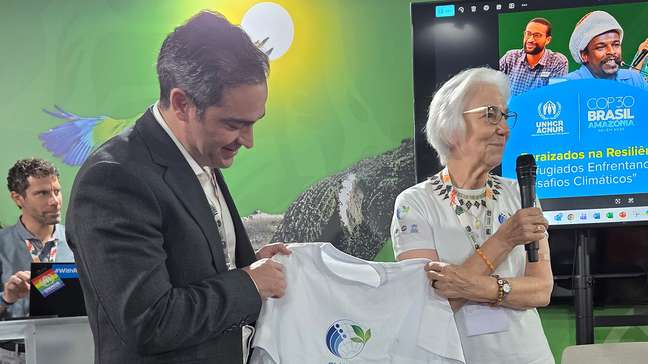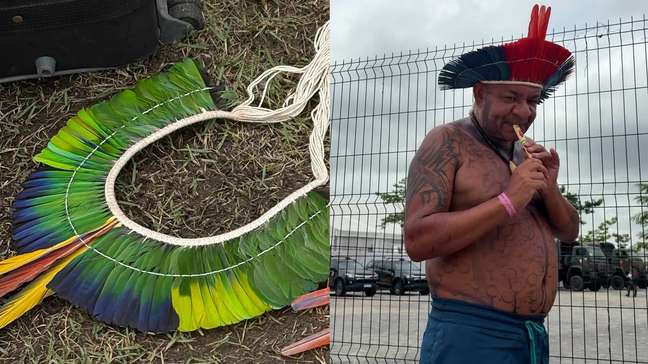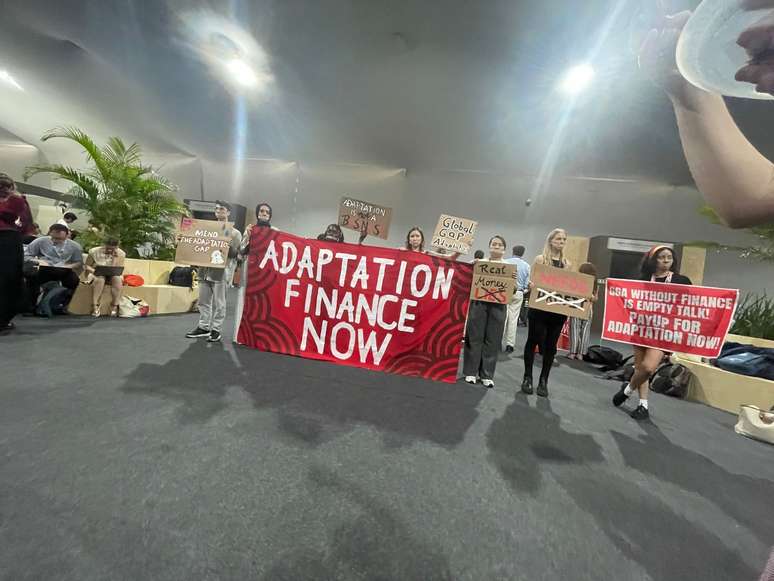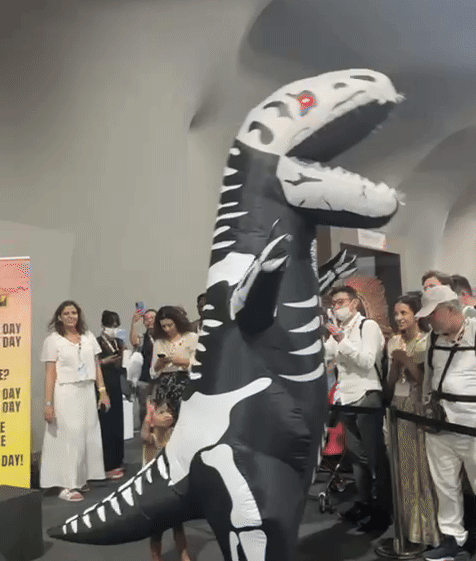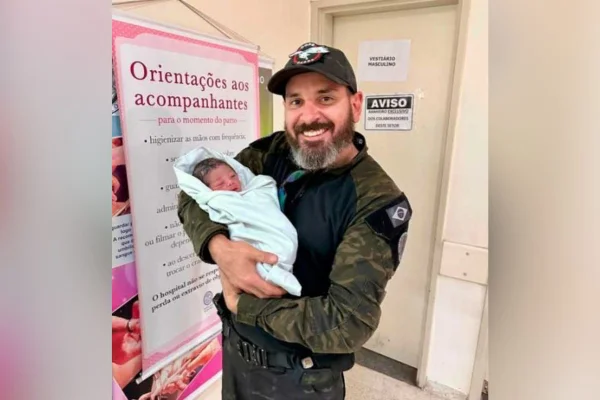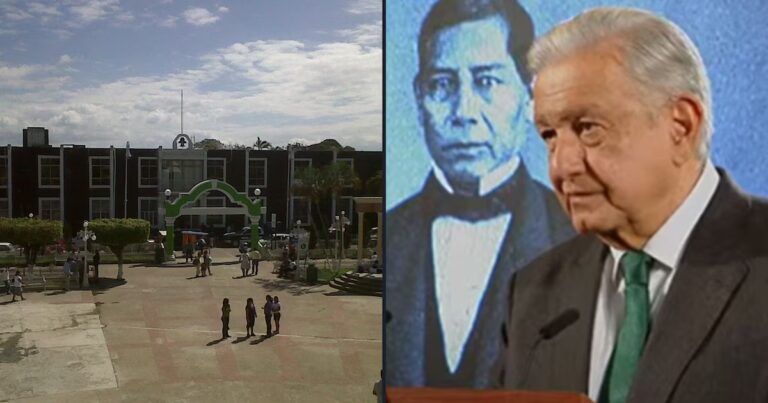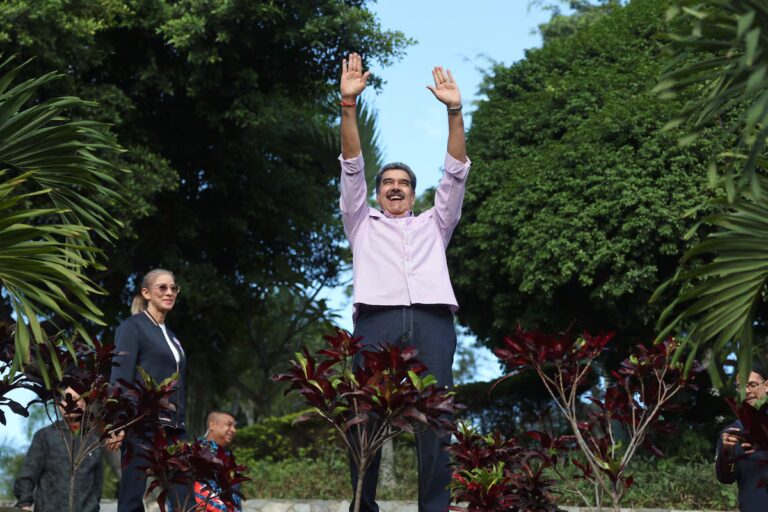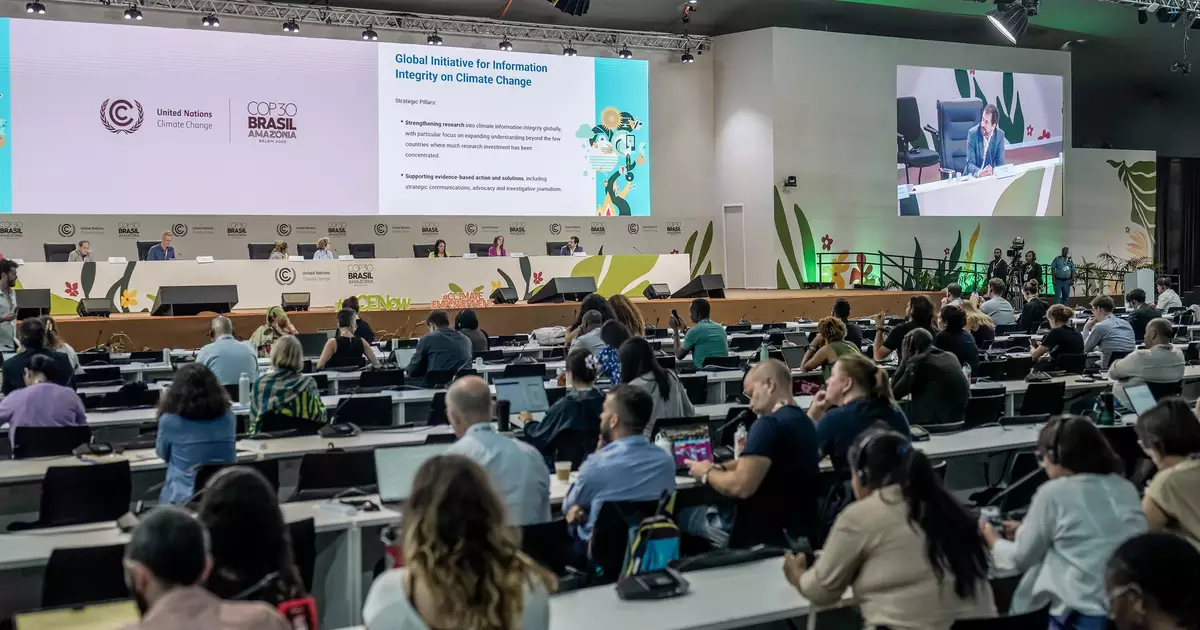
The fourth day of COP30 was marked by a letter from the United Nations (UN) to the federal government calling for increased security around the event, renewed criticism from Para Governor Helder Barbalho (MDB), US President Donald Trump’s position on the issue of climate change, and complaints from participants about the extreme heat in the event’s restricted Blue Zone.
Throughout the day, the conference also recorded operational coordination, official announcements, and various mobilization situations within and outside the accredited areas. The agenda included strengthening security arrangements, measures to improve air conditioning in spaces, events hosted by representatives from various sectors, and presentations of international efforts on climate adaptation. In addition, traditional COP interventions such as cultural activities and the “Fossils of the Day” counter-award were also part of the program.
Request from the United Nations to the government
The UN document addressed to the federal government was sent to the Civil Court, but its contents were not made public. Internal security in the Blue Zone is the responsibility of the United Nations Department for Security (UNDSS), which is responsible for defining protection protocols within space.
The House of Citizens said it had not taken part in decisions regarding the protests registered on the 11th, when protesters and indigenous groups tried to occupy Blue Zone areas, and that all UN requests had been met. The agency said a joint reassessment of police force numbers and deployment between the federal government, state governments and UNDSS resulted in expanded security coverage and reinforcement of orange and red zones.
In addition to joint military and federal police actions in the Green Zone, new metal barriers, fences and containment structures have also been introduced.
Rebelde actor participation
Alfonso Herrera, Mexican actor and Goodwill Ambassador for the United Nations High Commissioner for Refugees (UNHCR), moderated a panel discussion at COP30 this Thursday morning, in which Sister Rosita Milesi was one of the guests. fart earthAlfonso emphasized his admiration for being the first Brazilian to receive the UNHCR Nansen Award.
“What I just experienced with Sister Rosita was very powerful. Her work, her dedication was impressive. And I said to her, ‘Sister Rosita, you have so much more energy than I do, and you’re 80 years old,'” he joked.
Blue zone heat requires emergency measures
If last week’s climate summit ahead of COP30 showed cold air prevailing within the Blue Zones, the situation has changed. High temperatures once again caused complaints from attendees in restricted areas of the event. Despite increased security, people patrolling the pavilion in the restricted area faced intense heat as the air intakes could not accommodate the large number of people.
To address this issue, a new air conditioning unit was installed in the tent, and an additional Sprint model unit was installed in the room where the air conditioning failure was confirmed. Structural repairs were also made after gutters failed, causing leaks at the media center and health center. However, the most comfortable area remains the press area, which has more refrigeration points.
military strengthens defenses
The Brazilian military tightened security in the Blue Zone this Thursday. Protests held in this space were peaceful and did not require major intervention by security forces. However, caution is still required when moving around the area. Due to obstacles, authorized persons must exit their vehicle and walk or scooter to the entrance.
A typical late afternoon rain in Belém caught the visitors by surprise. In this scenario, street vendors are taking advantage of the flow. Jonas de Mello, who works near Zona Azul, said they have to replenish their stock every day. Umbrellas cost between 30 and 50 reais, while electric fans cost 30 reais.
Barbalho once again criticizes President Trump’s attitude
Para Governor Helder Barbalho (MDB) once again criticized US President Donald Trump’s comments on climate change and the US’ non-participation in COP30. He said Trump’s comments were “the result of ignorance” and contrasted with the country’s historic responsibility for global emissions. Barbarulho said the U.S. should have a “seat at the table” in climate negotiations and that President Trump should “post less and cooperate more.”
Indigenous peoples demand representation and funding
Indigenous presence remains strongest in Green Zones, which are open to the public, but some non-qualified groups locate themselves in areas outside Blue Zones to be seen and heard. Among them is Garapira Pataxo, who sells bio-jewelry and handicrafts with representatives of different ethnic groups. In an interview with earthunderscoring the importance of occupying territory and ensuring that ancestral diversity is recognized in all Brazilian biomes.
Mobilization activities were also recorded in the Blue Zone during the day. One of the main ones was a protest led by Walter Kumaruala of the People’s Climate Alliance with the slogan “Jente Cobra – Direct climate financing for people who care about forests”. fart earthduring last week’s People’s Summit, Kumarualla criticized the lack of credentials of several indigenous peoples and, after pressure, granted them access to restricted areas. “This is a COP for the Amazon, but the Amazon cannot enter this area,” he said, reinforcing the demand for direct financing to communities that protect forests.
Another protest focused on climate adaptation financing subsequently gained attention, but this time it was silent.
“Today’s Fossil”: Japan wins anti-prize
As with each day at COP, the end of the afternoon brought a performance intervention that has become a tradition at the conference. Around 6 p.m., a song heralds the arrival of the “Fossil of the Day” anti-prize. The award is given by the International Climate Action Network (CAN), a global network that has been active at the COP for 16 years, and focuses on those who have most impeded progress in climate change negotiations.
With humor, sarcasm, and an inflatable dinosaur, organizers “rewarded” Japan on this fourth day. Opais has been criticized for promoting initiatives seen as “smokescreens” such as carbon capture and storage projects, despite being in one of the world’s 10 countries with the highest fossil fuel emissions.
Brazil launches international adaptation plan in health sector
This Thursday afternoon, Health Minister Alexandre Pasilla announced the first international health-focused climate adaptation plan recognized by the World Health Organization (WHO) and supported by more than 100 countries and institutions.
The document, known as the Belem Plan, outlines actions to prepare health systems in the face of extreme events such as heatwaves, floods and droughts. Pasilla said the plan represents a global commitment to life and climate justice, stressing that “taking care of our health means taking care of our planet.” Brazil led the development in cooperation with the United Kingdom, Egypt, Azerbaijan, and the United Arab Emirates.
Earlier, Mr. Pasilla participated in a panel discussion at the Brazil Pavilion, reinforcing efforts to build a service force adapted to the new conditions imposed by climate change.
*The reporter traveled at the invitation of Mr. Mothiba, founder of the Transport Decarbonization Coalition.

